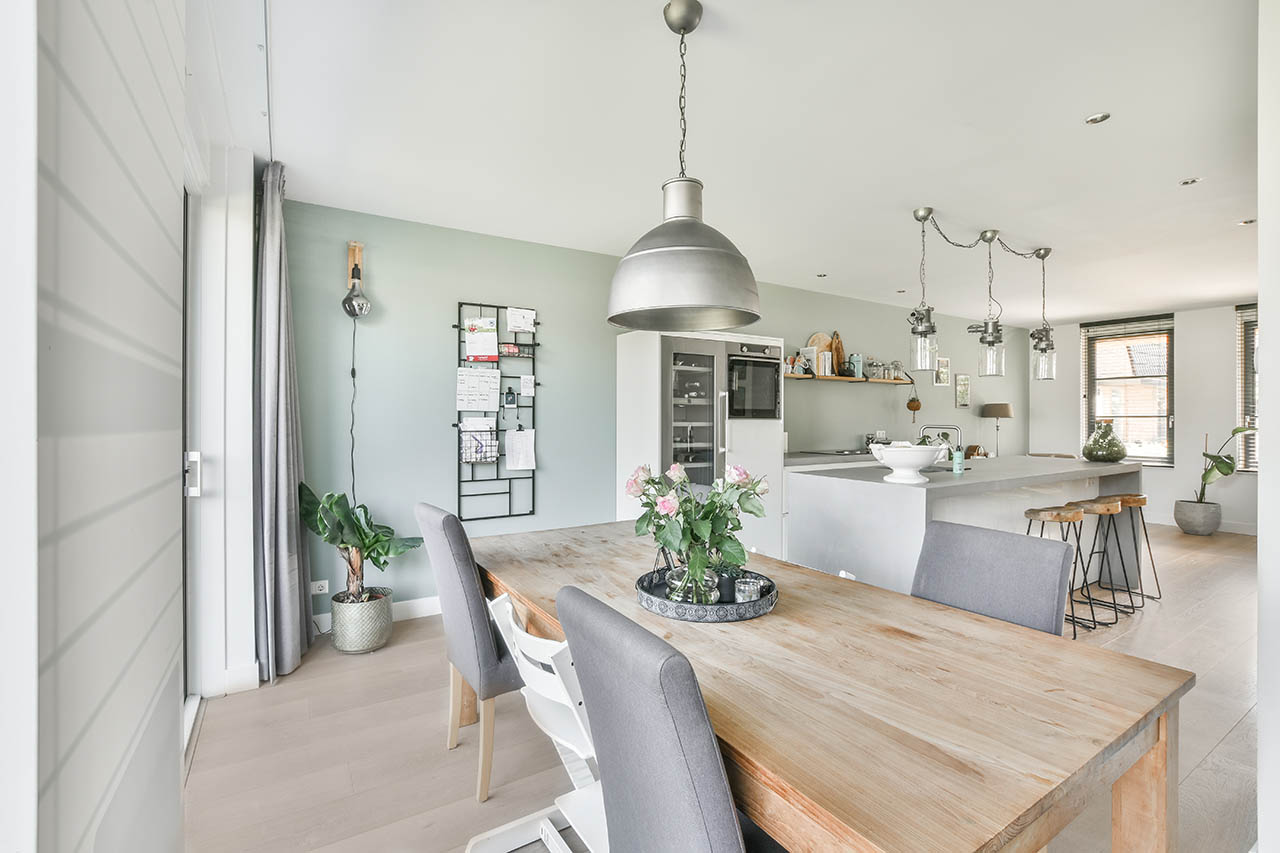
Thailand is finally opening its borders, and business activity is picking up. A new round of economic development is blooming after the recent slowdown caused by the coronavirus pandemic of the past two years.
The Thai economy is expected to grow by 3.7% in 2022 with the help of domestic demand, which began to grow after the easing of restrictive measures regarding COVID-19. The tourism sector is recovering. The new softer rules for mortgage lending should be an additional push to increase demand for real estate in Thailand. However, the economic outlook remains fragile. The measures for containing the spread of the coronavirus infection will depend on changes in epidemiology. The authorities are concerned about possible disease outbreaks after opening the borders. It is also expected that the total economic recovery will take 2-3 years.
Results of 2021
Thailand's top 36 real estate construction companies generated revenue of 66,609.86 million THB combined in the third quarter of 2021. Their net profit was 7595.51 million THB. These rates are lower by 17.98% and 29.54% compared to 2020. The average profitability of these companies was 11.40% in the third quarter. This figure was 11.57% in the second quarter of 2021, which is slightly higher. The volume of completed units and units under construction decreased by 1.65% compared to June 2021 in the period under review.
Active construction of low-rise properties has continued and they are still profitable. Demand for these units is gradually increasing, primarily in the real estate segment less than 10 million THB.
These are the top-10 real estate developers with the highest income in the first three quarters of 2021:
- LH - 24,770.37 (+8.68%)
- AP - 24,459.41 (+9.21%)
- Siri - 22,097.28 (-15.92%)
- PSH - 19,379.99 (-2.12%)
- Supalai - 18,521.91 (+43.85%)
- FPT - 15,721.01 (-23.34%)
- SC Asset - 13,445.53 (-0.96%)
- Origin – 11,793.64 (+43.13%)
- PF - 7098.10 (-23.66%)
- QH - 5903.30 (-14.27%)
The pandemic impacted the purchasing power of Thai citizens, resulting in a drop in both property sales and housing prices. In 2021 the rate of new projects launched was the slowest in six years.

What will 2022 bring?
Local real estate specialists believe that the industry will begin to recover in 2022. Improvements have already started due to the availability and distribution of vaccines and reducing the restrictive safety measures against the epidemic at the end of 2021. In the first half of 2022, the Thai real estate market expects new offers from real estate developers and new requests from potential buyers with high purchasing power. The opening of borders may increase the number of foreign buyers.
According to a recent survey, most Thais were hesitant to buy a house because of the pandemic's start. 71% of respondents reported that they were still planning to buy a home but had postponed it, awaiting improvement in the economic situation. At the same time, 39% of respondents plan to buy a house within 1–2 years. Most survey participants (66%) think that the main obstacle causing the refusal to buy a property is the lack of income due to the coronavirus pandemic. The most crucial factor for the Thai real estate market will be the easing of requirements for mortgage borrowers (LTV - Loan-to-Value measures) under these circumstances. The simplification of LTV measures is expected to boost real estate sales.
LTV (Loan-to-Value) is the ratio of the loan amount to the property value given as a pledge to a credit institution. This rate determines the pledge amount for mortgage lending. In connection with temporary LTV measures, Thai citizens, under certain conditions, will be able to get a mortgage loan without a down payment. This easing will be valid from October 20, 2021, to December 31, 2022. The Bank of Thailand expects that this will help attract money into the country's economy through the real estate sector, which is essential - it accounts for more than 9.8% of the country's GDP.
Experts believe that the LTV rate will not increase the housing demand in Thailand. However, property prices may be reduced after special measures. This is due to the decrease in opportunities for speculation in the real estate market.

Interestingly, it can be observed that Thai property prices continue to rise. The low point of property prices passed in 2021, when market development slowed down significantly, as the number of completed units decreased by more than 37%. There was also a drop of 42.5% in the sales of new apartments. This drop was particularly significant in Nonthaburi, Pathum Thani provinces, and Bangkok.
Vaccines are expected to be widely distributed in 2022, which will improve the real estate market with at least 80,117 new properties. It is also likely that the number of unsold new builds will decrease by about 161,120 units, or by 5.9%, compared to 2021.
After analyzing property prices in Thailand, we can conclude that low-rise units tend to increase the price index. The value of houses, villas, and townhouses increased by 6% in 2021 compared to 2020 and 13% compared to the end of the third quarter of 2019, before the pandemic. On the contrary, Thai apartment prices decreased by 11% in 2021 compared to the previous year and 16% pre-pandemic. The reason was a change in the lifestyle of potential real estate buyers, frequent quarantines, and remote work that increased the demand for more living space.
Real estate developers start new projects cautiously, and there are still many unsold new buildings in Thailand, especially condominium apartments. At the same time, there is no oversupply on the market either.
The opening of new electric train lines that cover suburban areas will affect the real estate sector in Bangkok. The focus of real estate developers will shift to the city's outskirts. New surface metro lines will be opened in 2022: the yellow line Ladphrao - Samrong and the pink line Khe Rai - Minburi.
Major developers plan to develop the area near the new metro lines with modern condominium complexes. Prices are expected to increase in these areas due to the infrastructure development, which has begun with the expansion of the transport network.
In the first half of 2022, the pace of new construction is expected to increase by 95.8% compared to the first half of 2021; it will begin to slow down again in the second half of 2022.
Many property developers are focusing on real estate in the tourist regions of the country and are counting on the return of foreign investment from previous years. Local developers are interested in Khon Kaen, Pattaya, and Phuket, among the tourist areas. Real estate developers expect demand for low-rise and high-rise buildings in these places both for permanent or temporary residence and for investment after the return of foreign investors in 2022.



